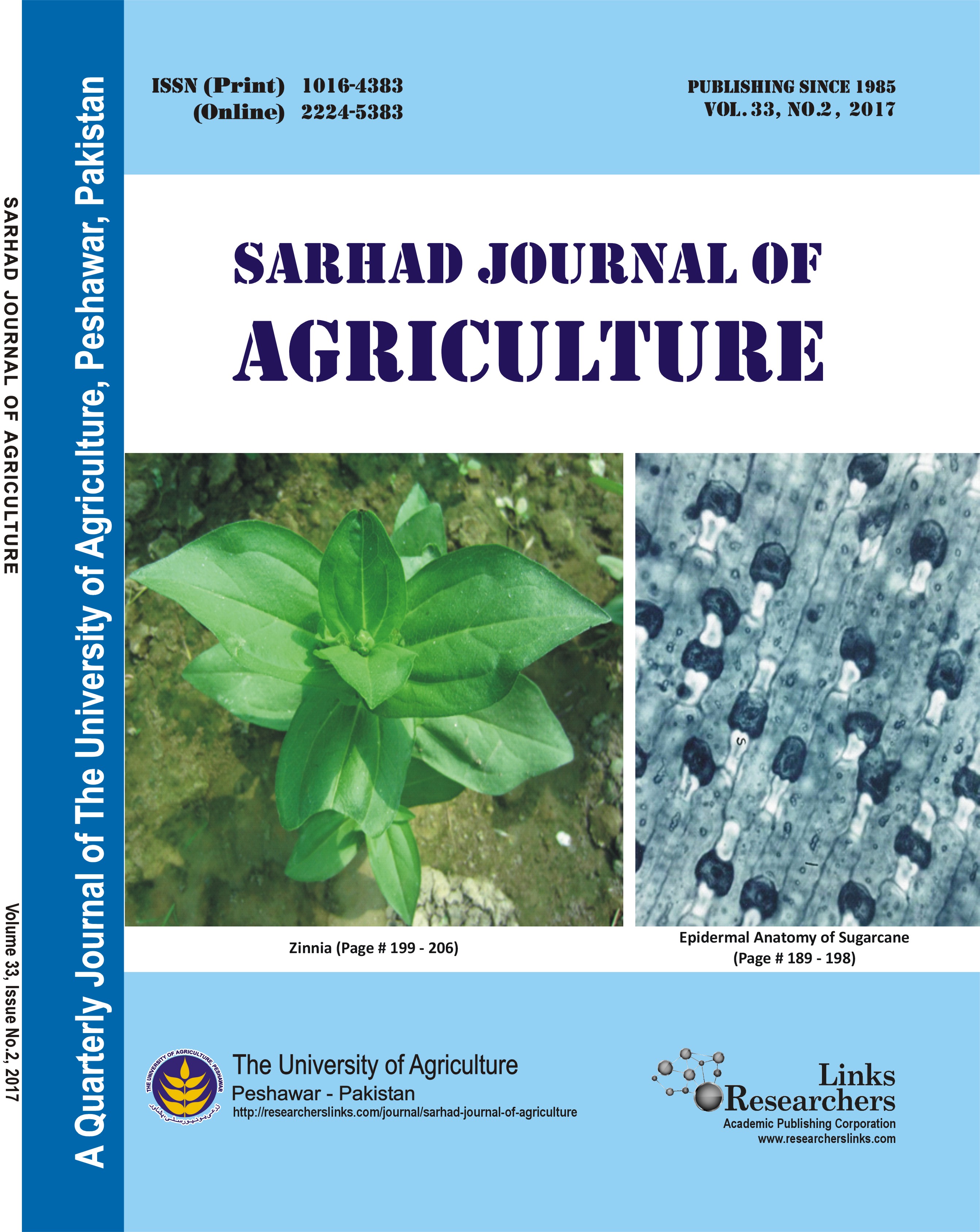Impact of Climate Change on Maize Productivity in Khyber Pakhtunkhwa, Pakistan
Impact of Climate Change on Maize Productivity in Khyber Pakhtunkhwa, Pakistan
Asim Khan1, Shahid Ali1*, Syed Attaullah Shah1, Aftab Khan1 and Raza Ullah2
ABSTRACT
This research was premeditated to estimate the impact of climate change on maize productivity in Khyber Pakhtunkhwa, Pakistan. Chitral, Swat, Mansehra, Peshawar, and D.I. Khan Districts were selected from different agro-ecological zones of Khyber Pakhtunkhwa. The climatic and non-climatic variables employed for the study were area under maize, maximum temperature, minimum temperature and precipitation, respectively. For statistical analysis, panel data record for twenty years (1996-2015) across five districts of the province were scrape together from Development Statistic of Khyber Pakhtunkhwa, Pakistan Bureau of Statistic and Pakistan Meteorological Department, Khyber Pakhtunkhwa. Hausman test recommended fixed effect model (as opposed to random effect) as a fit model for given estimation. The major findings proclaim that maximum temperature has negative impact on the yield of maize. Impact of precipitation show a positive and significant contribution to maize yield. High temperature has deleterious impact on maize productivity. Therefore, policy exertions needs to be concentrated toward impact of climate change on maize productivity. Development of temperature resistant maize verities for Khyber Pakhtunkhwa is also a good option. Moreover, awareness among farmers on climate change is required regarding plantation of trees and afforestation
To share on other social networks, click on any share button. What are these?







